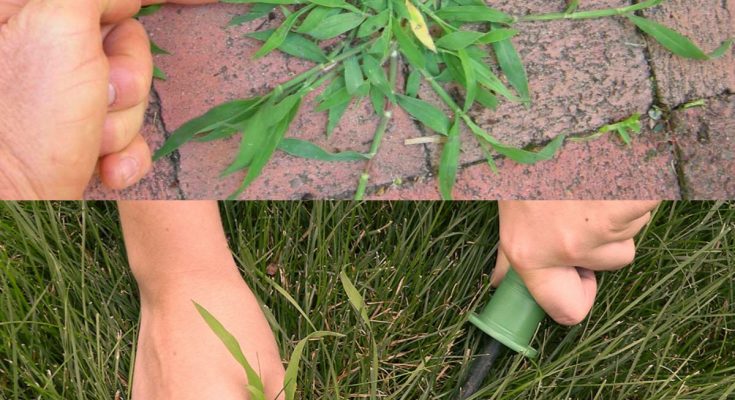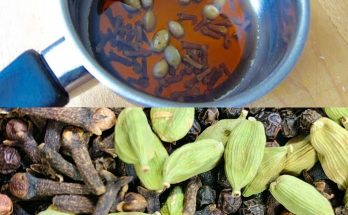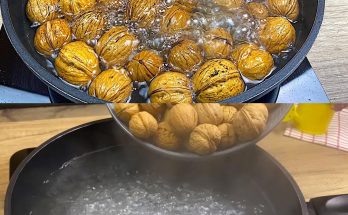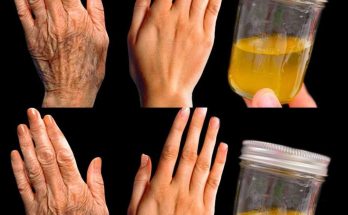Crabgrass ( Digitaria sanguinalis ) is often regarded as a common lawn nuisance, but beneath its reputation as an invasive weed lies a wealth of medicinal and nutritional properties. Long used in traditional remedies across various cultures, this plant offers numerous health benefits, from supporting digestion and kidney health to promoting cardiovascular wellness. Even more surprisingly, crabgrass seeds serve as a nutritious food source, and the plant can help improve soil health. Here’s a comprehensive look at how this misunderstood plant can become a valuable part of your wellness and environmental routine.
Both the roots and leaves of crabgrass can be used, although they serve slightly different purposes. The leaves are more commonly used for digestive support and have been associated with regulating blood sugar levels. The roots, on the other hand, are believed to have detoxifying properties and may support overall kidney health.
So yes, both the roots and leaves have their benefits, and you can use either depending on your specific needs!
What is Crabgrass?
Crabgrass is a hardy and fast-growing plant that can thrive in various conditions, often overtaking other vegetation in lawns and fields. It is widely considered a weed due to its invasive nature, but its leaves, stems, and roots contain medicinal properties that have been utilized for centuries. In some parts of Africa, crabgrass is even cultivated for its edible seeds, making it a food source in addition to a medicinal plant.
Nutritional Benefits of Crabgrass
1. A Traditional Food Source
Crabgrass seeds are highly nutritious and have been used as a food source in some cultures. These seeds are rich in protein, making them a valuable grain alternative. In Africa, crabgrass is cultivated for its seeds, which are ground into flour and used to prepare traditional dishes like porridge and bread.
How to Use Crabgrass Seeds
- Harvesting : Collect the seeds when they are fully ripe and dry.
- Preparation : Clean and grind the seeds into a fine flour.
- Cooking : Use the flour to make bread, porridge, or other baked goods.
Crabgrass flour is gluten-free and can serve as an alternative for those with gluten sensitivities or celiac disease.
Health Benefits of Crabgrass
1. Anti-Inflammatory Properties
Crabgrass contains compounds that can reduce inflammation in the body. Drinking tea made fromgrass leaves and stems may relieve conditions like joint pain, arthritis, and muscle soreness. It’s also beneficial for soothing sore throats and easing mild respiratory issues.
2. Kidney Health and Diuretic Effects
As a natural diuretic, crabgrass promotes increased urine production, helping the body flush out toxins. This makes it particularly beneficial for individuals dealing with water retention or mild kidney issues. Consuming crabgrass tea regularly can support overall kidney health and help maintain a balanced urinary system.
3. Digestive Support
Crabgrass has traditionally been used to aid digestion. Drinking crabgrass tea helps relieve bloating, indigestion, and mild stomach discomfort. Additionally, the plant acts as a gentle laxative, promoting regular bowel movements and maintaining digestive balance.
4. Skin Soothing Properties
Crabgrass is also effective for treating skin irritations such as insect bites, rashes, and minor wounds. A poultice made from fresh crabgrass leaves can be applied directly to the affected area. Its anti-inflammatory and antibacterial properties help reduce redness and promote healing.
5. Respiratory Support
Crabgrass tea has been used in traditional remedies to support respiratory health. It can help clear congestion, soothe the respiratory tract, and make breathing easier during colds, mild infections, or allergies.
6. Blood Sugar Regulation
Emerging research that suggests crabgrass may help regulate blood sugar levels, making it beneficial for those managing diabetes or anyone looking to maintain stable glucose levels.
7. Immune System Boost
Packed with antioxidants, crabgrass can strengthen the immune system. Drinking crabgrass tea may enhance your body’s defenses against common infections by neutralizing harmful free radicals that can weaken the immune response.
8. Cardiovascular Health
Crabgrass tea may promote heart health by relaxing blood and vessels improving circulation. This can aid in lowering blood pressure and supporting overall cardiovascular function.
9. Detoxification Support
Crabgrass acts as a natural detoxifier by enhancing liver and kidney function. Regular consumption of crabgrass tea encourages the removal of toxins from the body through increased urine production.

Environmental Benefits of Crabgrass
1. Erosion Control
Crabgrass has an extensive root system that helps stabilize the soil, preventing erosion. This can be especially beneficial in areas prone to soil degradation, such as slopes and ditches.
2. Soil Aeration
The plant’s robust roots also improve soil structure by aerating it. This enhanced aeration can benefit other plants by making it easier for them to establish roots and grow more vigorously.
How to Use Crabgrass for Health and Soil
Internal Use: Crabgrass Tea
For inflammation, digestive health, or kidney support:
- Boil a handful of fresh or dried crabgrass leaves and stems in half a liter of water for about 5 minutes.
- Strain and drink the tea once or twice a day.
External Use: Crabgrass Poultice
For skin irritations or minor wounds:
- Crush fresh crabgrass leaves into a paste.
- Apply the poultice directly to the affected area and leave it on for 20-30 minutes.
- Rinse the area with clean water afterward.
Soil Improvement and Erosion Control
- Allow crabgrass to grow in areas prone to erosion, as its root system can help stabilize the soil.
- Let the plant’s roots naturally aerate the soil to improve overall health and support the growth of other vegetation.

Final Advice: Use in Moderation
While crabgrass offers numerous health and environmental benefits, it’s important to use it in moderation. Its diuretic and laxative effects may lead to dehydration or digestive discomfort if consumed in excess. Always balance your use of crabgrass with other healthy practices, and consult a healthcare professional if you plan to use it regularly as a remedy.
Embrace crabgrass is not an unwelcome invader but as a versatile, health-boosting plant with much to offer.

By rethinking this common weed, you can tap into a rich source of natural remedies, nutritional benefits, and environmental support—turning crabgrass from a garden pest into a natural ally.



